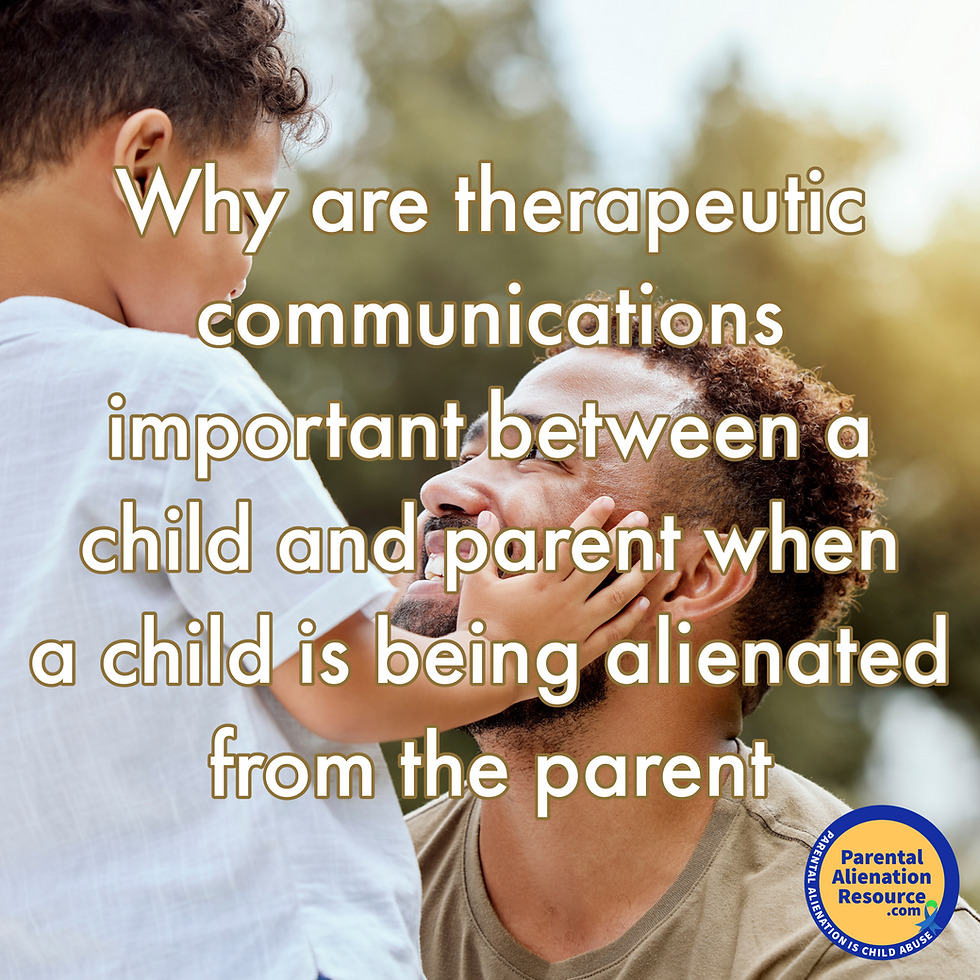Why are therapeutic communications important between a child and parent when a child is being alienated from the parent
- Parental Alienation Resource

- Apr 4, 2024
- 2 min read

Therapeutic communications between a child and a parent are crucial in cases of parental alienation for several reasons:
1. Rebuilding Trust: In cases of parental alienation, the relationship between the alienated parent and the child may be strained or damaged. Therapeutic communications provide a safe space for the child to express their feelings, fears, and concerns, and to begin rebuilding trust with the alienated parent.
2. Validation and Support: Through therapeutic communications, the child can receive validation for their emotions and experiences. A therapist can help the child understand the dynamics at play, normalize their feelings, and provide support as they navigate the complexities of parental alienation.
3. Emotional Healing: Parental alienation can have a significant impact on a child's emotional well-being. Therapeutic communications allow the child to process their emotions, address any trauma resulting from the alienation, and work towards healing and resilience.
4. Preventing Long-term Effects: Addressing parental alienation early through therapeutic interventions can help prevent long-term negative effects on the child's mental health, self-esteem, and relationships. By providing a supportive environment for the child to explore their feelings and experiences, therapy can mitigate the impact of the alienation.
5. Reconnecting Parent and Child: Therapeutic communications can serve as a bridge to reconnect the alienated parent and the child. Through guided conversations, activities, and interventions, the therapist can facilitate positive interactions, improve communication, and foster a sense of connection between the parent and child.
6. Legal and Custody Considerations: In cases where parental alienation is a factor in custody disputes or legal proceedings, therapeutic communications can provide valuable evidence of the child's emotional state, their relationship with each parent, and the progress made in addressing the alienation.
Overall, therapeutic communications play a vital role in supporting children who are experiencing parental alienation by helping them process their emotions, rebuild relationships, and promote their well-being and resilience in the face of challenging family dynamics.









Comments